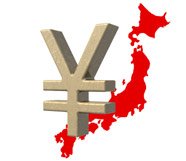Digital expands Forex markets even in times of crisis
Published by Gbaf News
Posted on March 27, 2013
5 min readLast updated: January 22, 2026

Published by Gbaf News
Posted on March 27, 2013
5 min readLast updated: January 22, 2026

Skrill’s FX account manager, Alexander Dando, explains how digital payments are expanding the Forex market and how struggling economies can help increase profits.
 Once, Forex was a world only for professional executives, who knew the trading markets inside out, predicting future fluctuations and dips weeks in advance. And because of slow bank transfers they needed to know what the market was doing ahead of time, as trades took three to five days. Forex is now open to any individual without the need for huge sums of money to be available instantly.
Once, Forex was a world only for professional executives, who knew the trading markets inside out, predicting future fluctuations and dips weeks in advance. And because of slow bank transfers they needed to know what the market was doing ahead of time, as trades took three to five days. Forex is now open to any individual without the need for huge sums of money to be available instantly.
This is mainly due to the internet. Forex is the most liquid market in the world and is also the most volatile. Scheduled announcements, like the UK budget or the US nonfarm payroll data, or unforeseen global events such as conflicts and natural disasters are all events traders need to be constantly aware of. Knowing the information as it happens and being able to react to this information allows traders to position their trades effectively. Waiting to hear this kind of information on the evening news means you have missed your chance; so online news updates present a new way to keep up to date with unfolding trends.
There are some traditional Forex brokers who still rely on bank wire transfers, but today’s traders who are reacting to up to the minute news are often unsatisfied with a 12-hour delay to a card-funded deposit.
That’s why digital payments such as digital wallets and instant transfer methods are re-painting the landscape of traders’ habits and preferences. There is more to these options other than additional security and speed – wallets, for example, offering cash back on customer deposits, unique offers for deposit bonuses and greater control over monetary flow.
For the past four years, foreign exchange volume has tripled to £4 trillion per day, and we expect to see this continue to grow. Although, retail Forex constitutes a very small percentage of this volume, it is rapidly building its share with more platforms offering those customers, who once never had the opportunity to trade the market, the chance to do so.
However, you need to know how the markets work. Take the economic trouble in Cyprus and the struggling Euro; a savvy Forex trader will know volatile markets offer the best opportunity to make profits. Anticipating the extent to which the news from Cyprus will have an impact on the strength or weakening of the Euro, for example, allows a trader to start planning their next investment decision, and this has been reflected clearly by our own Forex customers depositing significantly into our partner platforms the week the crisis was first reported.
Traditionally many Forex brokers have set up business in Cyprus due to the beneficial tax and banking arrangements, a trend we expect to see reduce in light of the recent economic problems.
Compliance and regulation is also an ever-increasing challenge in the Forex industry. It was once a loose and broadly unregulated industry but there has been increasing movement of brokers towards Cyprus and London to gain FSA and CySEC regulatory status.
Changes in the last few years have seen the SEC in the US requiring a Forex broker to have $20 million in liquidity before they are considered for a brokerage licence and Swiss entities require Forex companies to have banking licences, which has made these markets harder than ever to enter.
Even changes in the payment landscape is seeing companies, once safe in offshore regions, now restricted from taking card payments with Visa and MasterCard, which has significantly altered the way we work with our Forex partners, and this is a trend we see only getting more highly regulated. Ultimately, increased regulation goes to improve customer safety, adding assurances to online traders, which can only be a good thing.
With greater investment into trading platforms across the world, we are expecting to see increased participation across emerging markets and ever more aggressive margins. Enabling payments is core to our business and the service we provide to our Forex partners, and we are also seeing a trend towards low-cost, instant ways for traders to make deposits, and react quickly to market news as soon as they receive it. Hence the reason why a tendency towards instant bank transfers options and, indeed, the Skrill Digital Wallet are seeing significant growth in this sector.
Surprisingly, developing countries can be more advanced in terms of technology and payments than much of the developed world. It is because they have leapfrogged outmoded methods – desktop PCs and credit cards have barely had a chance to penetrate these markets – before smartphones and digital wallets became available.
So far, Forex platforms are mobile-ready – in both respect to platform functionality and deposit-taking ability – and there are few barriers to entry. Clearly though the issue still lies in customers having the opportunity to learn how to trade in an effective manner, and in this area where an issue lies there is also an opportunity.
Cards and traditional bank transfers are tried and tested, though a lack of innovative incentives and difficulties with mobile and tablet compatibility are causing their share to fall and for digital and alternative payments to take their place.
Explore more articles in the Trading category











